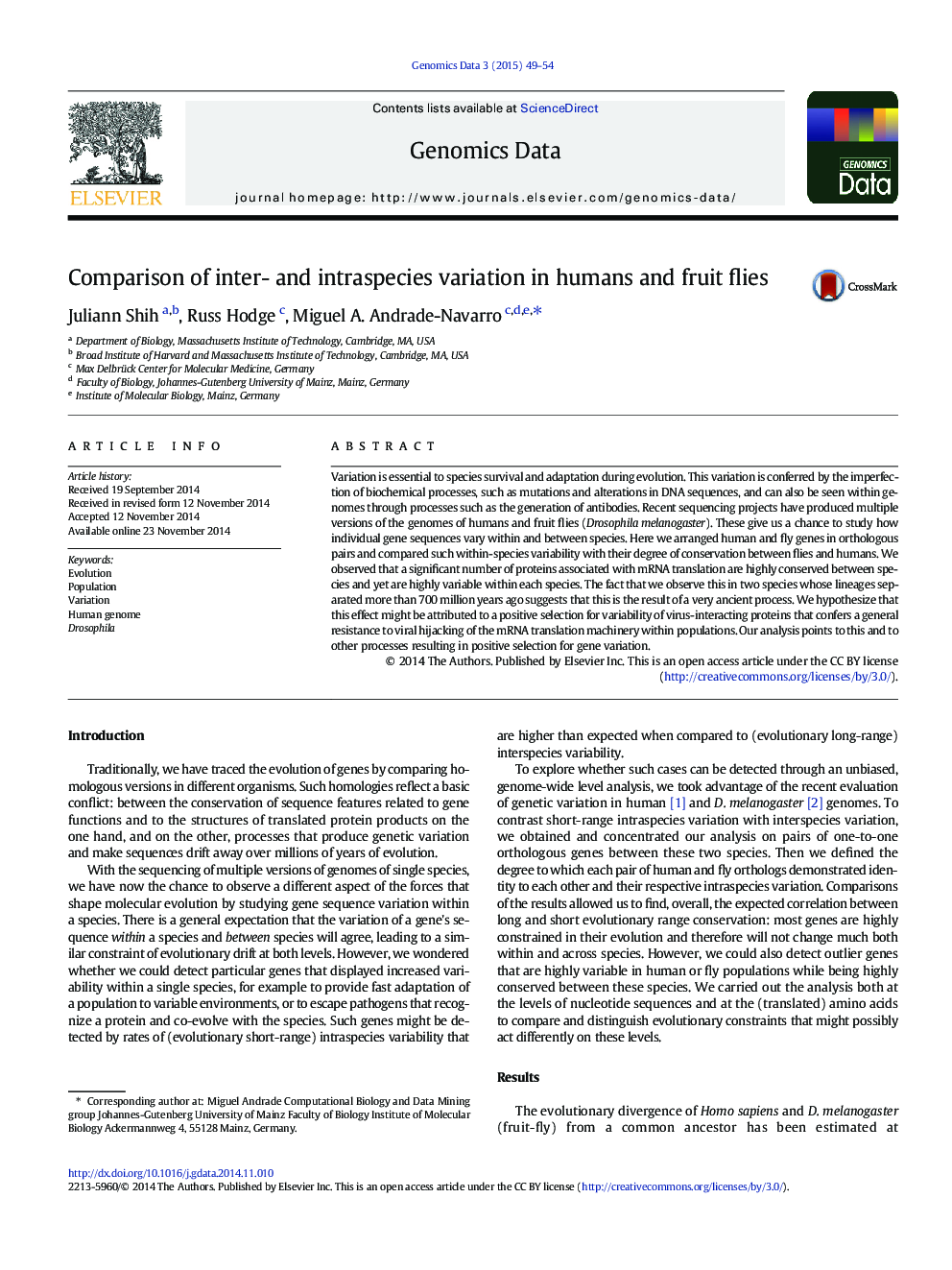| Article ID | Journal | Published Year | Pages | File Type |
|---|---|---|---|---|
| 2822106 | Genomics Data | 2015 | 6 Pages |
Variation is essential to species survival and adaptation during evolution. This variation is conferred by the imperfection of biochemical processes, such as mutations and alterations in DNA sequences, and can also be seen within genomes through processes such as the generation of antibodies. Recent sequencing projects have produced multiple versions of the genomes of humans and fruit flies (Drosophila melanogaster). These give us a chance to study how individual gene sequences vary within and between species. Here we arranged human and fly genes in orthologous pairs and compared such within-species variability with their degree of conservation between flies and humans. We observed that a significant number of proteins associated with mRNA translation are highly conserved between species and yet are highly variable within each species. The fact that we observe this in two species whose lineages separated more than 700 million years ago suggests that this is the result of a very ancient process. We hypothesize that this effect might be attributed to a positive selection for variability of virus-interacting proteins that confers a general resistance to viral hijacking of the mRNA translation machinery within populations. Our analysis points to this and to other processes resulting in positive selection for gene variation.
